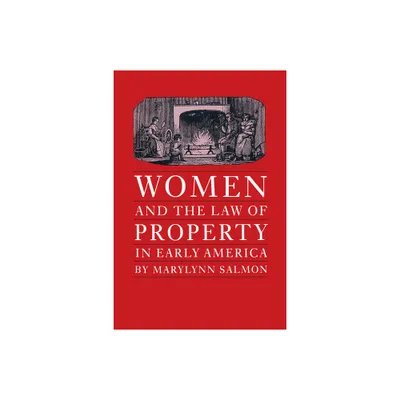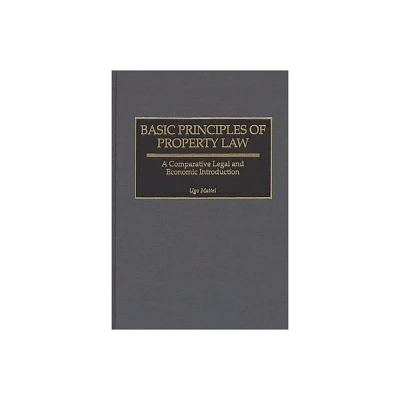Home
Legalism: Property and Ownership
Loading Inventory...
Barnes and Noble
Legalism: Property and Ownership
Current price: $125.00


Barnes and Noble
Legalism: Property and Ownership
Current price: $125.00
Loading Inventory...
Size: Hardcover
*Product Information may vary - to confirm product availability, pricing, and additional information please contact Barnes and Noble
In this volume, ownership is defined as the simple fact of being able to describe something as 'mine' or 'yours', and property is distinguished as the discursive field which allows the articulation of attendant rights, relationships, and obligations. Property is often articulated through legalism as a way of thinking that appeals to rules and to generalizing concepts as a way of understanding, responding to, and managing the world around one. An Aristotelian perspective suggests that ownership is the natural state of things and a prerequisite of a true sense of self. An alternative perspective from legal theory puts law at the heart of the origins of property. However, both these points of view are problematic in a wider context, the latter because it rests heavily on Roman law. Anthropological and historical studies enable us to interrogate these assumptions.
The articles here, ranging from Roman provinces to modern-day piracy in Somalia, address questions such as: How are legal property regimes intertwined with economic, moral-ethical, and political prerogatives? How far do the assumptions of the western philosophical tradition explain property and ownership in other societies? Is the 'bundle of rights' a useful way to think about property? How does legalism negotiate property relationships and interests between communities and individuals? How does the legalism of property respond to the temporalities and materialities of the objects owned? How are property regimes managed by states, and what kinds of conflicts are thus generated?
Property and ownership cannot be reduced to natural rights, nor do they straightforwardly reflect power relations: the rules through which property is articulated tend to be conceptually subtle. As the fourth volume in the Legalism series, this collection draws on common themes that run throughout the first three volumes:
Legalism: Anthropology and History
,
Legalism: Community and Justice
, and
Legalism: Rules and Categories
consolidating them in a framework that suggests a new approach to legal concepts.
The articles here, ranging from Roman provinces to modern-day piracy in Somalia, address questions such as: How are legal property regimes intertwined with economic, moral-ethical, and political prerogatives? How far do the assumptions of the western philosophical tradition explain property and ownership in other societies? Is the 'bundle of rights' a useful way to think about property? How does legalism negotiate property relationships and interests between communities and individuals? How does the legalism of property respond to the temporalities and materialities of the objects owned? How are property regimes managed by states, and what kinds of conflicts are thus generated?
Property and ownership cannot be reduced to natural rights, nor do they straightforwardly reflect power relations: the rules through which property is articulated tend to be conceptually subtle. As the fourth volume in the Legalism series, this collection draws on common themes that run throughout the first three volumes:
Legalism: Anthropology and History
,
Legalism: Community and Justice
, and
Legalism: Rules and Categories
consolidating them in a framework that suggests a new approach to legal concepts.


















